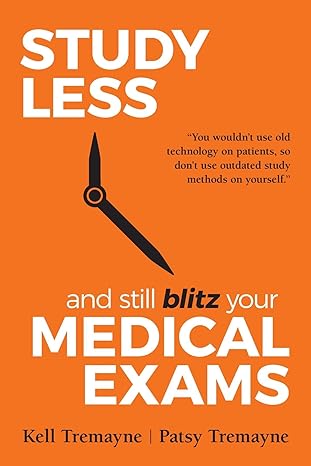Fueling Focus: Why a Healthy Balanced Diet Is Essential for Junior Doctors' Cognitive Performance
In the high-pressure world of medicine, junior doctors are like Formula 1 drivers—operating at high speed, under intense pressure, and with little margin for error.
Just as an F1 car requires premium fuel and precise fluid management to perform at its peak, your brain demands a healthy balanced diet and consistent hydration to function optimally.
Yet, these foundational elements of cognitive performance are often overlooked.
Why are they overlooked?
Because junior doctors face intense workloads, long shifts, and unpredictable schedules, which make it difficult to maintain a healthy balanced diet.
A synthesis of workplace barriers - like night shifts and extended hours or lack of nutritious options in the workplace- can often lead to reliance on high-fat, high-sugar convenience foods, emotional eating, and skipped meals.
Stress and fatigue further exacerbate poor dietary choices.
In our book Study Less and Still Blitz Your Medical Exams, we emphasize that wellbeing - including nutrition - is not a luxury but a strategic advantage. A healthy balanced diet fuels the brain with essential nutrients that support memory, focus, and emotional regulation, while hydration keeps your mental engine cool and responsive.
Why a Healthy Balanced Diet Matters for the Brain
The brain consumes about 20% of the body’s energy, and it thrives on a steady supply of glucose from nutrient-rich foods. Poor dietary choices—like excessive sugar, processed foods, and skipping meals—can lead to energy crashes, mood swings, and impaired memory.
Research shows that diets high in refined sugars can impair hippocampal function, the brain region responsible for memory and learning.
Key nutrients that support cognitive function include:
- Omega-3 fatty acids (found in fish, flaxseeds, walnuts): support brain cell structure and communication.
- B vitamins (especially B6, B12, and folate): essential for neurotransmitter synthesis and energy metabolism.
- Antioxidants (from berries, leafy greens, and colourful vegetables): protect brain cells from oxidative stress.
- Iron and zinc: support attention, memory, and overall mental performance.
In the book, we encourage small but meaningful dietary changes—like reducing sugar in coffee or preparing nutritious meals in advance—to support memory and reduce fatigue.
Hydration: The Forgotten Cognitive Enhancer
Even mild dehydration (as little as 1–2%) can impair attention, short-term memory, and decision-making. Junior doctors often go hours without drinking water during shifts, relying on caffeine to stay alert. While caffeine can enhance focus in moderation, it’s no substitute for hydration.
Tips for staying hydrated:
- Keep a water bottle at your desk or in your bag.
- Drink a glass of water before each study session.
- Limit caffeine after 2 p.m. to avoid sleep disruption.
- Include hydrating foods like cucumbers, oranges, and soups in your meals.
Hydration also supports detoxification, mood regulation, and energy levels—all crucial for sustained cognitive performance.
Some Suggestions for What You Can Do Right Now
Even small changes can make a big difference in your cognitive performance and overall wellbeing. Here’s how to start integrating a healthy balanced diet and hydration into your routine—without adding stress to your already packed schedule.
1. Plan Meals Ahead: Fuel Like an F1 Team |
2. Track Hydration: Keep Your Engine Cool |
3. Eat Before Study: Prime Your Brain for Performance |
 |
 |
 |
1. Plan Meals Ahead: Fuel Like an F1 Team
Just as a Formula 1 team plans every pit stop and fuel mix in advance, you can optimize your brain performance by prepping meals and snacks ahead of time. Choose brain-friendly foods that are easy to grab between shifts or study blocks:
- Boiled eggs: High in choline, which supports memory and learning.
- Nuts and seeds: Rich in omega-3s and magnesium for focus and calm.
- Fruit: Natural sugars and antioxidants for quick energy and brain protection.
- Wholegrain wraps or rice paper rolls: Easy to pack and balanced in carbs, protein, and fibre.
Batch-cook meals on your day off and freeze portions. This reduces decision fatigue and ensures you’re getting a healthy balanced diet even on your busiest days.
2. Track Hydration: Keep Your Engine Cool
Your brain is 75% water, and even mild dehydration can impair memory and decision-making. Use simple tools to stay on track:
- Apps like WaterMinder or Hydro Coach to set reminders.
- Mark your water bottle with time goals (e.g., drink to the 10 a.m. line).
- Pair hydration with routine: Drink a glass of water before every study session or patient handover.
Aim for 2–3 liters per day, adjusting for caffeine intake and physical activity. Hydration is your cooling system—essential for keeping your cognitive engine from overheating.
3. Eat Before Study: Prime Your Brain for Performance
Studying on an empty stomach is like racing without fuel. A healthy balanced meal before study improves focus, memory retention, and emotional regulation. Ideal pre-study meals include:
- Grilled chicken or tofu with quinoa and vegetables: Balanced in protein, complex carbs, and fibre.
- Oats with berries and nuts: Slow-release energy and antioxidants.
- Smoothie with banana, spinach, protein powder, and flaxseed: Quick, portable, and nutrient-dense.
Avoid heavy, greasy meals that can cause sluggishness, and limit caffeine close to bedtime to protect sleep quality.
Final Thoughts
In the demanding world of medicine, junior doctors often prioritize clinical duties and study over their own wellbeing. Yet, as we've seen, a healthy balanced diet and consistent hydration are not optional extras—they are essential components of cognitive performance, emotional resilience, and long-term health. Just like a Formula 1 car needs premium fuel and fluid management to stay on track, your brain needs quality nutrition and hydration to perform under pressure.
The barriers are real: long shifts, unpredictable schedules, and limited access to nutritious food make it challenging to maintain healthy habits. But small, intentional changes—like planning meals, tracking water intake, and eating before study—can have a powerful impact. These are not just lifestyle tweaks; they are strategic choices that support memory, focus, and decision-making when it matters most.
Ultimately, investing in a healthy balanced diet is an act of self-leadership. It’s about fueling your body and brain so you can show up fully—for your patients, your studies, and yourself. You’re not just surviving the race—you’re building the stamina to win it.





